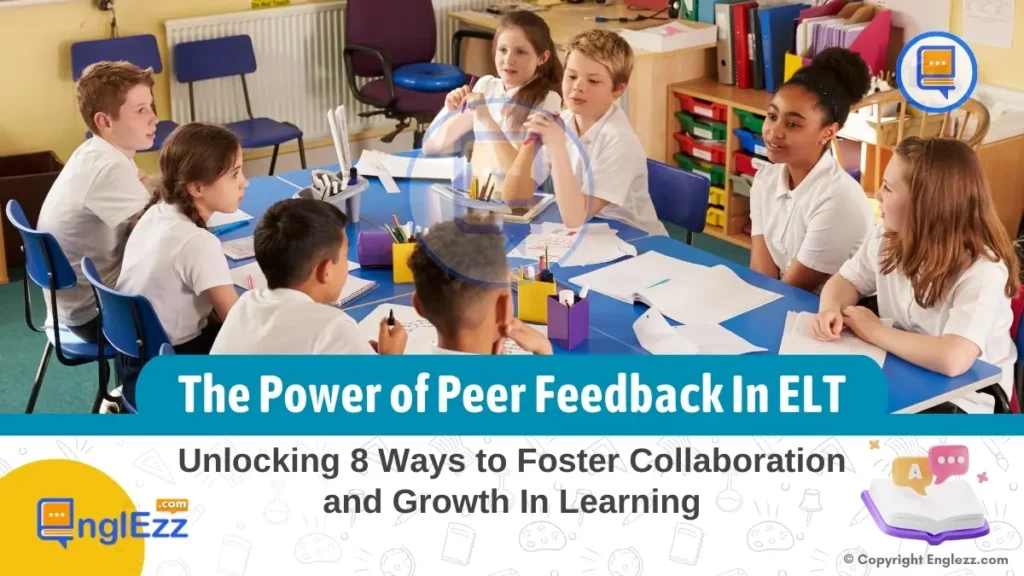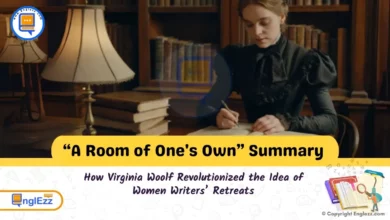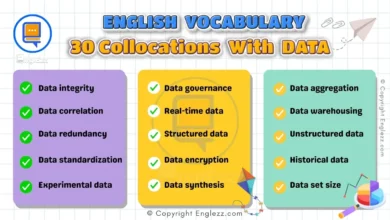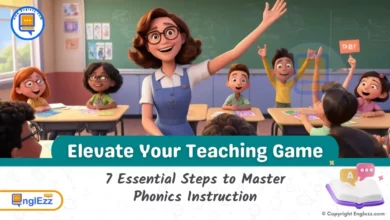In the dynamic landscape of English Language Teaching (ELT), the power of peer feedback emerges as a transformative force, not only shaping academic outcomes but also fostering collaboration and growth among learners. By embracing the practice of constructive criticism within ELT settings, educators unveil a realm where students are not just recipients of knowledge but active contributors to each other’s development.
Encouraging students to provide feedback ignites a collaborative spirit that elevates the learning experience beyond traditional boundaries, empowering individuals with the tools to engage meaningfully in their educational journey.
Table of Contents
- Promoting Collaboration and Growth in ELT Assessment
- Peer Feedback as a Formative Assessment Tool
- Developing Critical Thinking Skills through Peer Feedback
- Building Self-Esteem and Confidence Through Peer Evaluation
- Overcoming Challenges in Implementing Peer Feedback Practices
- Leveraging Technology for Enhanced Peer Feedback Experiences
- Empowering Educators to Harness the Potential of Peer Feedback
- Embracing the Transformative Power of Peer Feedback in ELT
Promoting Collaboration and Growth in ELT Assessment
Creating a feedback-friendly classroom environment lies at the heart of this paradigm shift. Establishing a culture where feedback is revered as a cornerstone of progress cultivates an atmosphere ripe for intellectual exchange and personal advancement. Through intentional strategies aimed at nurturing inclusivity and respect, educators pave the way for students to embrace critique as an invaluable instrument for honing their skills.

In this realm, peer feedback transcends mere evaluation; it becomes a catalyst for building bridges between learners, weaving a tapestry of shared insights and collective growth that propels them towards excellence.
Peer Feedback as a Formative Assessment Tool
In the realm of English Language Teaching, peer feedback stands out as a potent formative assessment tool that not only evaluates students’ progress but also enhances their learning experience. By engaging in peer assessment activities, students actively participate in the evaluation process, fostering a sense of ownership over their learning journey. This dynamic approach to assessment promotes active learning by encouraging students to critically analyze their peers’ work, thus deepening their understanding of language concepts and building essential analytical skills.
Teachers can effectively incorporate peer feedback into their teaching practices by creating structured opportunities for peer evaluation. For instance, assigning group projects where students provide constructive feedback on each other’s presentations allows for collaborative learning experiences. Additionally, introducing peer evaluation forms or rubrics can guide students on providing specific and constructive feedback. By establishing clear guidelines and expectations for peer feedback sessions, teachers empower learners to engage meaningfully with each other’s work while honing their communication skills.
Furthermore, integrating technology tools such as online platforms or digital collaboration spaces can enhance the efficacy of peer feedback processes in ELT contexts. These tools facilitate seamless sharing and analysis of feedback data while ensuring secure communication among peers. By leveraging technology for peer assessment, teachers can create a more interactive and engaging environment where students feel empowered to exchange insights and improve their language proficiency collaboratively. Ultimately, embracing peer feedback as a formative assessment tool not only enriches the educational experience but also cultivates a culture of shared growth and mutual support within the classroom.
Developing Critical Thinking Skills through Peer Feedback
Peer feedback in English Language Teaching (ELT) doesn’t just benefit learners in their linguistic skills but also contributes significantly to the development of critical thinking abilities. When students engage in providing and receiving peer feedback, they are challenged to think analytically about the strengths and areas for improvement in their peers’ work. This process not only enhances their ability to evaluate language proficiency but also sharpens their analytical skills by encouraging them to delve deeper into a piece of writing or a spoken presentation.
An effective way peer feedback nurtures critical thinking is through critiquing others’ work. By understanding how to provide constructive criticism that is both beneficial and respectful, students learn to deconstruct language concepts and rebuild them more effectively. For instance, when students analyze a peer’s writing composition or oral performance, they must critically assess the coherence, grammar usage, vocabulary selection, and overall presentation. This practice prompts them to think beyond surface-level errors and consider the underlying structural elements of effective communication.
Furthermore, engaging in the evaluation of peers’ work not only aids in improving critical thinking skills but also fosters a deeper understanding of language concepts. As students compare different approaches taken by their peers and reflect on the feedback received on their own work, they gain insights into various language strategies and techniques. This comparative analysis encourages them to question their assumptions, broaden their perspectives on language use, and refine their communication methods based on multiple viewpoints presented during peer review sessions. Through this process, students don’t just learn from teachers but also benefit greatly from each other’s unique perspectives and experiences.
Cultivating collaboration and communication skills through peer feedback is a powerful way to enhance student learning in English Language Teaching (ELT) contexts. By engaging students in providing constructive feedback to their peers, educators can create an environment that fosters teamwork and mutual support. Encouraging students to work together to assess and improve each other’s language skills not only reinforces the importance of collaboration but also builds a sense of community within the classroom. For example, pairing students up for writing exercises where they exchange drafts and offer feedback can promote not only language development but also interpersonal skills.
Effective communication lies at the core of giving meaningful feedback. When students engage in peer assessment activities, they are not only refining their language proficiency but also honing their ability to express thoughts clearly and respectfully. By highlighting the importance of providing specific and actionable feedback, teachers empower students to communicate effectively while promoting a culture of constructive critique. In oral presentations, for instance, students offering detailed feedback on pronunciation or intonation can greatly benefit both the presenter and themselves by improving listening skills and articulation.
Various activities can be integrated into ELT curricula to promote cooperative learning through peer assessment. Group discussions where students analyze each other’s compositions or dialogues encourage active participation and collaborative problem-solving. Pairing stronger language learners with those who may need additional support creates opportunities for peer mentoring and mutual growth. These interactive tasks not only stimulate critical thinking but also nurture empathy and understanding among diverse learners. Ultimately, cultivating collaboration and communication skills through peer feedback enriches the educational experience by fostering an inclusive learning environment grounded in shared goals and collective achievement.
Building Self-Esteem and Confidence Through Peer Evaluation
Peer evaluation plays a pivotal role in nurturing students’ self-esteem and confidence within the English Language Teaching (ELT) environment. By providing constructive feedback that acknowledges learners’ strengths, peers can act as catalysts for boosting self-assurance. For instance, a student who excels in creative writing may receive affirming feedback on their storytelling skills from a peer, validating their talent and instilling a sense of pride in their abilities. Such positive reinforcement not only fosters self-esteem but also encourages students to further explore their strengths and interests.
The impact of positive feedback on learners’ confidence levels cannot be understated. When students receive recognition from their peers for their efforts or achievements, it serves as a powerful motivator that fuels continued growth and progress. Imagine a language learner receiving praise from peers for mastering a challenging grammar rule; this encouragement not only bolsters their confidence in tackling linguistic hurdles but also reinforces their belief in their capacity to learn and improve. Positive peer evaluations create a supportive learning atmosphere where students feel valued and empowered to take risks in their language development journey.
To ensure that peer evaluations contribute positively to students’ self-image, educators can implement strategies focused on balanced feedback and growth mindset principles. Encouraging peers to provide specific examples of what they admire in each other’s work helps learners internalize positive traits about themselves. Additionally, guiding students to view constructive criticism as an opportunity for improvement rather than personal critique instills resilience and adaptability. By fostering an environment where peer evaluations are rooted in empathy, respect, and mutual support, educators can cultivate a culture of positivity that propels learners towards academic excellence with confidence and grace.
Overcoming Challenges in Implementing Peer Feedback Practices
Integrating peer feedback practices into English Language Teaching (ELT) classrooms can present various challenges that educators need to navigate effectively. One common obstacle is student apprehension or resistance towards providing feedback to their peers. Students may feel uncomfortable critiquing others’ work, fearing potential conflicts or judgment from their classmates. To address this reluctance, teachers can start by fostering a supportive environment where constructive criticism is encouraged and valued. By emphasizing the learning benefits of peer feedback and framing it as a collaborative tool for improvement rather than evaluation, students are more likely to engage actively in the process.
Additionally, creating clear guidelines and structures for peer feedback activities can help streamline the process and alleviate confusion among students. Establishing specific criteria for giving feedback, setting expectations for participation, and providing training on effective feedback techniques can empower students to provide meaningful input to their peers. By offering guidance on how to deliver constructive criticism respectfully and constructively, educators facilitate a more positive experience with peer evaluations.
Moreover, when introducing peer feedback practices, educators may encounter challenges related to managing diverse learning styles, language proficiency levels, or cultural differences within a classroom. To overcome these hurdles, teachers can design flexible feedback formats that cater to individual needs while promoting inclusivity. By incorporating varied assessment methods such as written comments, verbal discussions, or multimedia presentations, educators ensure that all students can participate meaningfully in the peer feedback process regardless of their background or skill level. Ultimately, by proactively addressing these challenges through empathy, adaptability, and structured support systems, educators create an environment conducive to productive peer interactions and growth opportunities for all learners involved.
Leveraging Technology for Enhanced Peer Feedback Experiences
In the realm of English Language Teaching (ELT), technology presents a powerful ally in enhancing peer feedback experiences. Digital tools like Google Docs, Padlet, or Feedback Fruits offer dynamic platforms that streamline peer evaluation processes in ELT contexts. These tools allow students to provide real-time comments, suggestions, and edits on each other’s work, fostering collaboration beyond physical classroom borders. By embracing such technologies, educators can create a seamless environment for students to engage in constructive feedback exchanges regardless of location or time constraints.
The advantages of utilizing online platforms for collecting, analyzing, and sharing peer feedback data are manifold. With digital repositories specifically designed for storing feedback archives securely, teachers gain insights into learners’ progress over time while respecting their privacy and confidentiality. Moreover, these platforms enable educators to track individual and collective feedback trends, identifying areas where students excel or require additional support effectively. By harnessing technology’s data analytics capabilities within the ELT landscape, instructors can tailor instructional strategies and interventions to meet diverse learning needs proactively.
Integrating technology seamlessly into existing pedagogical approaches enriches the peer assessment experience by promoting interactive and engaging feedback loops. For instance, using video conferencing tools like Zoom or Microsoft Teams enhances real-time communication during peer evaluations, allowing for nuanced discussions and clarification of feedback points. Similarly, online collaborative whiteboards such as Miro facilitate visual brainstorming sessions where students can collectively annotate texts or images with suggestions during peer review activities. By infusing technology strategically into ELT practices, educators cultivate a tech-savvy learning environment that empowers students to provide and receive meaningful feedback with ease and efficacy.
Empowering Educators to Harness the Potential of Peer Feedback
To maximize the benefits of peer feedback in English Language Teaching (ELT) classrooms, educators must be equipped with the necessary resources and strategies. By providing teachers with training sessions on effective peer feedback practices, they can learn how to facilitate structured and constructive peer evaluation processes. These opportunities focus not only on the technical aspects of implementing peer feedback but also emphasize the importance of nurturing a culture where feedback is seen as a tool for growth rather than criticism. Through ongoing professional development, educators can refine their skills in guiding students through meaningful interactions that promote collaborative learning.
Professional development initiatives tailored to enhancing educators’ facilitation skills play a crucial role in unlocking the potential of peer feedback. Teachers learn how to create a supportive environment where students feel empowered to give and receive constructive critique. By honing their ability to guide dialogues that are respectful, insightful, and growth-oriented, educators pave the way for impactful peer interactions that drive learning outcomes. These training opportunities also underscore the significance of building trust within classroom communities, fostering an atmosphere where students feel comfortable engaging in open discussions about their peers’ work.

Advocating for ongoing support systems is essential to help educators navigate challenges that may arise when incorporating peer assessment techniques into their teaching practices. By offering mentorship programs, resource libraries, or online forums dedicated to discussing best practices in peer feedback, teachers gain access to a network of support that encourages continuous growth and improvement. Creating a community where educators can share successes, troubleshoot issues, and exchange innovative ideas regarding peer assessment contributes to a more robust adoption of collaborative learning practices across ELT classrooms.
Embracing the Transformative Power of Peer Feedback in ELT
As we journey through the expansive realm of English Language Teaching (ELT), one thing remains abundantly clear—the indispensable role of peer feedback as a catalyst for collaborative learning excellence. By summarizing its key advantages, we illuminate the path towards nurturing positive relationships through a culture rooted in constructive critique and mutual growth. Fostering collaboration, communication, critical thinking, confidence, and self-esteem becomes not just a goal but an achievable reality when well-implemented ELT-based methods blend seamlessly with dynamic interaction capabilities.
The beauty of embracing peer feedback lies in its ability to transcend traditional boundaries, paving the way for robust stakeholder discourse mechanisms that connect virtual methodologies with impactful traditional routes. Through this interconnected approach, educators and learners alike stand poised to shape a future workforce environment that thrives on these solid educational frameworks.
As we continue to champion the transformative potential of peer feedback in ELT, we unlock doors to collaborative learning excellence that extend far beyond immediate academic scenarios—propelling us towards a horizon where every voice is valued, every perspective embraced, and every learner empowered to navigate the ever-evolving landscape of education with confidence and fervor.








